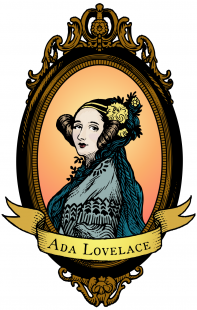So, who was Ada Lovelace? Some people know her as the daughter of Lord Byron, the famed Romantic poet. People should know her as the first computer programmer—not as the first female computer programmer but as the first ever! She is responsible for elaborating on the “Analytical Engine,” an early predecessor of the modern computer. Her impact on the “Analytical Engine” as well as on other machines was groundbreaking and remains extremely relevant as we continue to embrace and improve upon technology.

Today, we celebrate her as well as all women in science, technology, engineering and math around the world on Ada Lovelace Day.
On October 10th, we had our own Ada Lovelace Day at W&L! Sponsored by the University Library, we took to Wikipedia to edit any page we felt needed a little TLC. Specifically, the edit-a-thon was intended to raise awareness about underappreciated women in STEM, like Ada Lovelace, by inviting students and faculty alike to edit Wikipedia articles, create new articles for important people without them, and supply citations for stated facts without references. Emily Cook, our Research and Outreach Librarian, hosted the event and provided attendees with information on how to get started (as well as candy, hot chocolate and Pure Eats donuts). She emphasized the importance of “verifiable accuracy” as Wikipedia puts it in its stated principles and simply getting the facts out there so that innovators like Ada Lovelace can be awarded the appreciation they deserve.
As I enjoyed a Pure Eats donut, I explored the list of women scientists and important figures and quickly became overwhelmed by the number of underrepresented and underappreciated women whose pages required improvement. I wanted to do them all justice by editing their pages and contributing to the culmination of knowledge already on the Internet. Because I couldn’t choose just one, I aided the issue at large by finding references for different statements without citations on various articles. In this way, I felt that I was able to help in a broad yet impactful way. Now that I have dipped my toe into the world of editing Wikipedia articles, I can dive deeper into individual articles in the future, verifying facts and adding biographical information in the hopes of garnering support for and granting credit to women whose achievements should not go unnoticed.
And there are ways for you to get involved too! Although this year’s Ada Lovelace Day has passed, you too can contribute to the cause and engage in the rewarding feeling of spreading knowledge on the Internet by editing one of the 5,490,757 articles (and counting) currently on Wikipedia. There are an infinite number of ways to celebrate important women in STEM and make a difference.
Check out these links to get started:
How to Edit Wikipedia Articles
Statements that Require Citations
-Jenny Bagger, DH Undergraduate Fellow